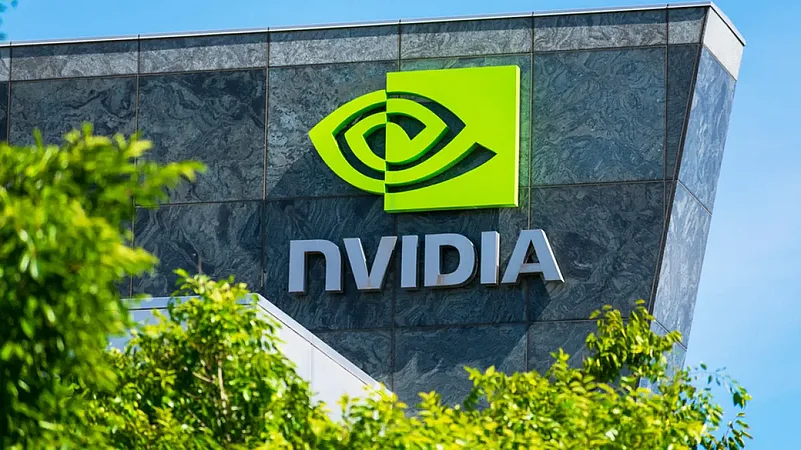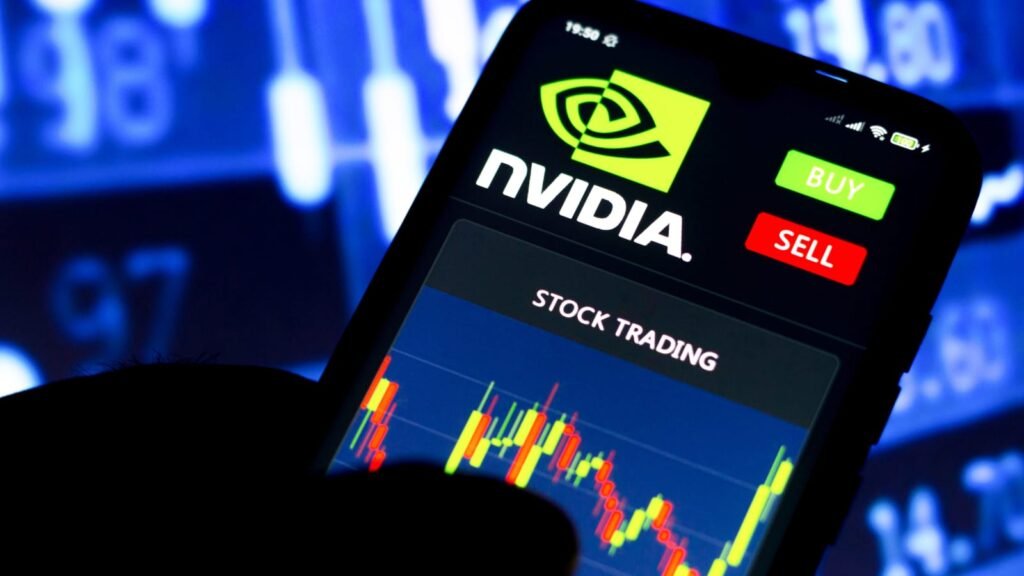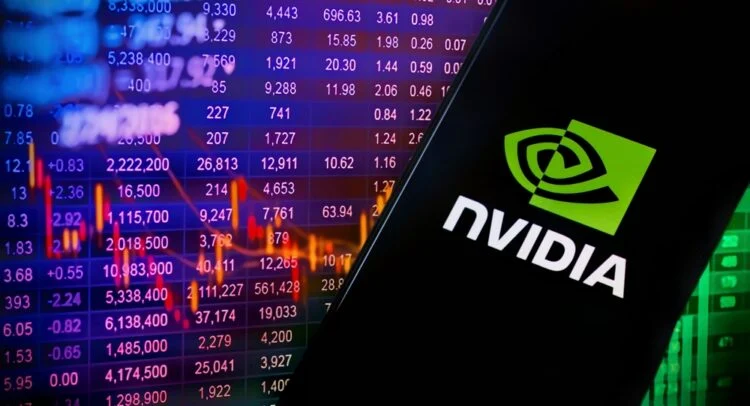
The world of stock trading is never without its challenges, but when industry giants like Nvidia face potential hurdles, it draws the attention of investors and analysts alike. Recently, Nvidia stock earnings warning has raised alarms among market participants, especially with the added complexity of the company’s dealings with China. In this post, we’ll delve deep into what this warning means for Nvidia’s future, whether it’s too late to buy Nvidia stock, and what the implications are for current investors.
What Is Behind the Nvidia Stock Earnings Warning?
Nvidia stock earnings warning has sent ripples through the tech and investment communities. The company, which has long been a leader in the semiconductor sector, now faces significant uncertainty due to recent regulatory scrutiny and international trade tensions. This issue’s earnings warning for its stock is especially notable as it highlights the challenges Nvidia faces from both geopolitical tensions and supply chain disruptions.
As a leader in graphics processing units (GPUs), Nvidia’s fortunes are often tied to the semiconductor sector’s global performance. However, its exposure to international markets, particularly China, has now become a significant point of concern. The recent issue of Nvidia earnings warning for its stock signals that the company could face challenges in its global operations, particularly in the Chinese market, where Nvidia generates a significant portion of its revenue.
Why Is Nvidia’s Deal with China a Concern?
Nvidia’s deals with Chinese tech firms have been critical to its revenue stream, as China is a major market for the company’s GPUs, especially in the gaming and AI sectors. However, the Chinese government is now scrutinizing past agreements, with an eye on limiting foreign influence in the sector. The Nvidia stock earnings warning comes at a time when the company’s dealings with China are under the microscope, further complicating the outlook for the company’s future earnings. If China takes action on these deals, it could significantly impact Nvidia’s growth potential in the region.
Trade Negotiations Affecting Nvidia’s Future
Trade negotiations between the U.S. and China have been volatile, and Nvidia’s situation is no exception. These negotiations have direct implications for Nvidia’s market access and operations in China. With the increasing tension between the two nations, many are asking: Should I invest in Nvidia? or Should I sell my Nvidia stock? The Nvidia stock earnings warning has made these questions more pressing as investors consider the potential risks to Nvidia’s future earnings and stock price.
Should I Buy Nvidia Stock Now? Is It Too Late?

The primary question on the minds of investors is: Should I buy Nvidia stock? The company has consistently been one of the top performers in the tech sector, but with current developments around the earnings warning and China’s involvement, it’s crucial to weigh the risks. The Nvidia stock earnings warning may make some investors hesitant, but it’s important to consider Nvidia’s long-term growth prospects as well.
Nvidia’s Strong Fundamentals
Despite the Nvidia stock earnings warning, Nvidia’s fundamentals remain strong. The company’s dominance in AI and machine learning, coupled with its cutting-edge GPU technology, positions it for long-term success. Nvidia has been actively expanding into new markets, such as data centers, where it holds a competitive advantage due to its advanced hardware and software solutions. NVIDIA’s earnings warning for its stock might suggest short-term volatility, but the company’s solid foundation could allow it to overcome these challenges.
Evaluating the Impact of the Earnings Warning
The Nvidia stock earnings warning comes at a time when the company is navigating numerous challenges, including the scrutiny over its deals with Chinese firms. While this could hurt short-term profitability, it’s important to consider the long-term growth potential of Nvidia. If you’re wondering whether it’s too late to buy Nvidia, think about whether you believe in its technological dominance and ability to weather geopolitical storms.
Why Is Nvidia Going Down? Understanding the Factors

If you’ve noticed a dip in Nvidia’s stock price recently, you’re not alone. Many investors are asking: Why is Nvidia going down? Let’s break down the factors at play, including the Nvidia stock earnings warning that has caused concern.
Geopolitical Risks
The growing tension between the U.S. and China is one of the primary reasons Nvidia’s stock has been volatile. The Nvidia stock earnings warning highlights the potential impact of these geopolitical risks on Nvidia’s business. The preliminary investigation into Nvidia’s past deals with Chinese tech companies has created a cloud of uncertainty. If the Chinese government imposes stricter regulations or limits Nvidia’s access to the market, it could have a significant impact on the company’s bottom line.
Supply Chain and Semiconductor Shortages
In addition to geopolitical risks, Nvidia has also been affected by global supply chain disruptions. The semiconductor shortage, which has plagued the tech industry, is still causing delays in production and increasing costs for Nvidia. These challenges, coupled with the uncertainty around Nvidia’s China business, contribute to the company’s stock fluctuations. The Nvidia stock earnings warning serves as a reminder that supply chain disruptions can have a lasting impact on Nvidia’s financial performance.
What Are the Potential Risks for Nvidia Investors?
While Nvidia has strong growth potential, there are several risks investors need to consider before deciding to hold, buy, or sell their shares. The Nvidia stock earnings warning has brought some of these risks into sharper focus.
1. Regulatory Risks in China
China’s regulatory environment is unpredictable, and any adverse changes could hurt Nvidia’s business in the region. With Nvidia issuing an earnings warning for its stock related to trade negotiations and scrutiny over past deals, investors need to be aware of the potential for significant market disruptions.
2. Trade Negotiations and Global Tensions
Ongoing trade negotiations between the U.S. and China could create market volatility. If trade barriers are implemented or further sanctions are placed on Nvidia, it could face challenges in its Chinese operations, a key revenue source. NVIDIA’s earnings warning for its stock reflects these ongoing risks in the tech giant’s international business.
3. Competition from Other Tech Giants
While Nvidia is a leader in the GPU market, it faces growing competition from other tech companies, including AMD and Intel. These competitors are also pushing into AI and machine learning, which could erode Nvidia’s market share in the coming years. NVIDIA’s earnings warning for its stock comes at a time when competition in Nvidia’s core markets is intensifying.
4. Supply Chain Challenges
The semiconductor shortage is expected to continue causing delays in production for Nvidia and its competitors. The Nvidia stock earnings warning highlights how these ongoing issues can impact the company’s ability to meet demand and affect profitability.
Should I Sell My Nvidia Stock?
With all these factors at play, you might be wondering: Should I sell my Nvidia stock? It’s a tough call, especially when considering Nvidia’s long-term growth potential. The Nvidia stock earnings warning suggests that the company may face challenges in the short term, but it’s important to assess the bigger picture.
- Short-Term Volatility: If you’re risk-averse and concerned about short-term volatility, selling might be the right option. NVIDIA’s earnings warning for its stock indicates potential losses, especially in the wake of trade tensions and regulatory scrutiny.
- Long-Term Investment: If you believe in Nvidia’s leadership in AI and its ability to adapt to global challenges, holding your stock might be the best move. Nvidia’s innovative technologies position it for strong growth over time. The Nvidia stock earnings warning may be a temporary setback in an otherwise promising future.
The Road Ahead for Nvidia: Navigating China and Beyond
Despite the challenges Nvidia faces, it’s clear that the company remains a dominant force in the tech industry. With a leadership position in the AI and GPU markets, Nvidia is poised to continue its upward trajectory, even if short-term disruptions occur. If you’re asking yourself: Should I invest in Nvidia? The answer largely depends on your risk tolerance and investment horizon. The Nvidia stock earnings warning may be a signal to remain cautious, but it doesn’t necessarily spell doom for Nvidia’s future.
Nvidia Stock and China’s Role
China’s influence on Nvidia’s earnings cannot be ignored, but it is just one part of the bigger picture. Nvidia’s technological advancements in AI, data centers, and other high-growth sectors continue to drive investor interest. While trade negotiations and potential regulatory hurdles remain a concern, Nvidia’s long-term outlook remains positive. NVIDIA’s earnings warning for its stock has certainly made investors cautious, but Nvidia’s strong position in emerging technologies might allow it to thrive despite these challenges.
Conclusion: Is Now the Right Time to Invest in Nvidia?
The Nvidia stock earnings warning has created uncertainty, particularly with China’s role in the company’s future. However, Nvidia’s strong fundamentals, leadership in AI, and market dominance make it a strong contender in the tech space. If you believe in Nvidia’s long-term prospects, now could still be a great time to buy, even as geopolitical risks and supply chain challenges linger.
As always, make sure to conduct thorough research and consider your investment goals before making any decisions. Whether you’re wondering, should I buy Nvidia stock or should I sell my Nvidia stock, it’s crucial to assess your risk tolerance and market outlook. The Nvidia stock earnings warning may be a bump in the road, but Nvidia’s potential in AI and computing technologies could lead to significant growth in the future.
FAQs
1. Is Nvidia a good investment for 2025?
Nvidia’s dominance in AI and its strong market position suggest that it will continue to be a solid investment in the long term. However, geopolitical and supply chain risks should be monitored. The Nvidia stock earnings warning is an important factor to consider.
2. Will Nvidia’s stock go up or down in 2025?
Predicting Nvidia’s stock performance depends on various factors, including the resolution of trade negotiations, the impact of supply chain issues, and regulatory developments in China. The Nvidia stock earnings warning makes this question even more complex.
3. Should I hold Nvidia stock during the earnings warning?
If you believe in Nvidia’s long-term potential and can stomach short-term volatility, holding onto your stock may be the right choice. However, consider your financial goals and risk appetite. The Nvidia stock earnings warning suggests a period of uncertainty.
4. What is Nvidia’s role in AI?
Nvidia plays a critical role in AI, providing GPUs that power machine learning, AI algorithms, and autonomous systems. Its technology is crucial to the advancement of AI in multiple industries.
Read Also
Hi, I’m Leonie Waechter. I’m a passionate business writer who loves exploring topics like entrepreneurship, leadership, marketing, and small-business trends. Through my articles, I aim to make complex business ideas clear and practical so readers can grow their knowledge and achieve real-world success.
